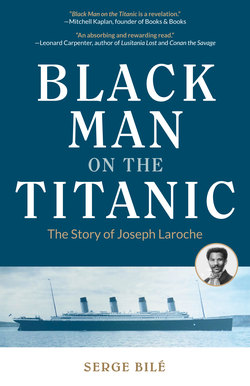Читать книгу Black Man on the Titanic - Serge Bile - Страница 26
На сайте Литреса книга снята с продажи.
ОглавлениеII. The Earth Shakes
Joseph Laroche’s story began far away from Cherbourg, across the ocean—again—on a former French colony, a Caribbean island already much talked about at the time: Haiti.
He was born on May 26, 1886, in the city of Cap-Haïtien32, in the far north of the island.
For a long time, Cap-Haïtien was the country’s most important city. During colonial times and after Independence, it served as the capital of “Saint-Domingue,” bustling with activities. Port-au-Prince, its great rival in the west, would later prevail, relegating Cap-Haïtien to second place. In 1886, however, with its thirteen thousand inhabitants and its active commercial port, Le Cap was still playing an important role in exchanges with Europe and North America. Ships brought flour, soap, shoes, clothes, linen, hardware, and wine. They left loaded with coffee, cocoa, wood, cotton, sugar, tortoise shells, and roots of vetiver, a plant that produces an essence sought after by perfume-makers.
Trade was the specialty of Joseph Laroche’s mother, Euzélie Laroche33, who’d built a fortune. At twenty-four, the single mother had enough money to raise her son on her own. She gave Joseph her last name because the father refused to acknowledge him.
“From what we know of her, she was a dynamic and hard-working woman. She was a speculator in sugarcane, cotton, and, above all, coffee,34” jurist Christina Schutt35, a family descendant, explains with pride. “Euzélie is the sister of the great-grandfather of my ancestor,” she says.
In Haiti, a speculator is a merchant who practices general business. However, if one wants to acquire agricultural commodities, one must first buy a special government license. Euzélie Laroche had this valuable permit, the key to her success; it allowed her to purchase the planters’ harvest. From the coffee producers, for instance, she bought large bags.
